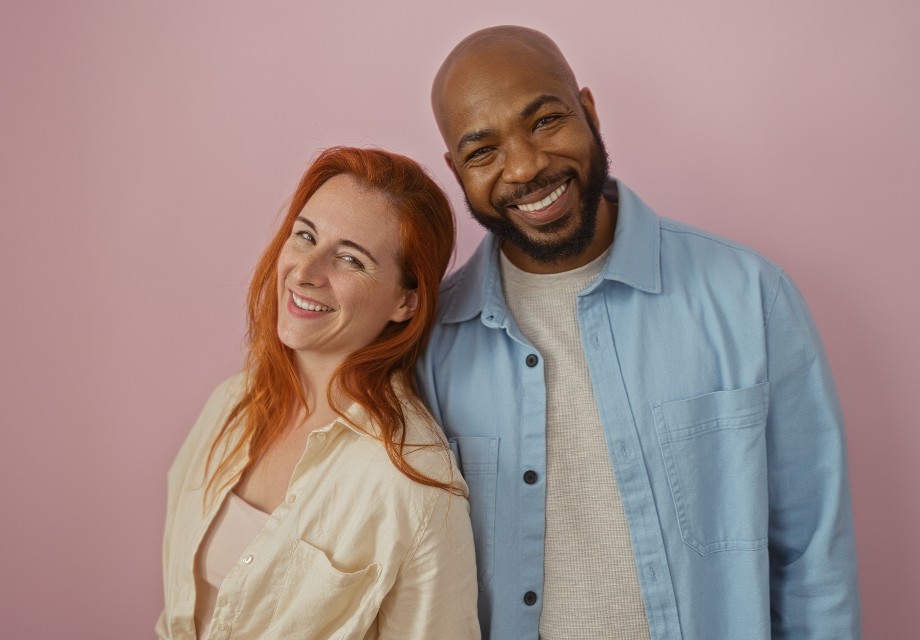The Challenges of Interracial Relationships in the South

In the Deep South, there had been a great taboo for generations: love that crosses the color line. Marriage between blacks and whites was illegal less than forty-five years ago, and continues to be frowned upon since then.
An ethnographic study done by Maria Tempenis, Beth Walton, and Robert McNamara entitled “Crossing the Line: Interracial Couples in the South” shows that there are issues and obstacles these couples have to face, including an overwhelming sense of social isolation. The problems they encounter include hostility, which ranges from stares to outright attacks; lack of support; and being ostracized by their families.
Here’s a more detailed look at the challenges of interracial relationship in the South:
- Societal Judgment and Discrimination
The South’s history of slavery and segregation has created deep-seated racial biases that continue to affect interracial relationships. Negative reactions that interracial couples often face include public scrutiny, judgment, and hostility from individuals and communities that may not be accepting of their relationship. Also, there is the issue of “reracing” and identity—that is, some individuals find themselves struggling with their racial identity and feels that their racial identity is invalid. They may also feel pressured to conform to societal expectations.
- Family Disapproval
Because of family members may have different cultural values and beliefs, this often leads to conflict or disapproval of the relationship. Also, family members may harbor deep-seated prejudices or fears about interracial relationships, which makes them resistant and disapproving. This often leads to a barrage of questions, concerns, and unwanted opinions from family members.
- Personal Struggles and Challenges
Between the couple themselves, they also have to navigate different cultural norms, traditions, and expectations, which can be all a challenge to the relationship. Cultural differences can include differences in communication styles and expectations, which can lead to misunderstandings and conflict. These challenges in the relationship, both within and outside of the relationship, obviously can impact the mental health of the couple. The constant pressure and stress of facing societal and family disapproval can take a toll on the couple’s mental health.
Managing the Challenges
Knowing the challenges of interracial relationship, how can a couple manage the unique challenges they face particularly related to cultural differences, family dynamics, and societal pressures? In a nutshell, these challenges can be addressed through open communication, mutual understanding, and supportive social networks. Here is a more in-depth discussion on how they can manage these challenges:
- Open Communication and Mutual Understanding
It is important that the couple learn about each other’s cultures. This means being actively engaged in learning about their partner’s background, traditions, and values. This can involve attending cultural events together, asking questions, and seeking information from reliable sources. They also need to communicate openly and honestly, discussing their expectations, boundaries, and any concerns they might have about the relationship. They should practice active listening, making sure that they seek clarification to ensure you understand each other’s perspectives. Lastly, they should be patient and understanding. Both parties should recognize that learning about each other’s differences and adjusting to them take time. They should be patient with each other and be willing to compromise.
- Addressing Family and Societal Pressures
The couple may need to set boundaries with family and friends in order to deal with family and societal pressures. It is crucial that they establish clear boundaries with those who may not be supportive of your relationship. This could mean limiting contact with individuals who consistently express negativity or disapproval. They could also seek support from a supportive network—that is, surround themselves with friends and family who are accepting and understanding of their relationship. This can help them feel more secure and confident in their partnership. It is also important to address racism or discrimination together as a couple. This may involve educating others, seeking support from community organizations, or even legal action in some cases.
- Building a Strong Connection
In order to weather all the challenges of interracial relationship, building a strong foundation is a must. This means identifying common interests, values, and goals. This can help you navigate cultural differences and strengthen your bond. Another must is prioritizing quality time together, which allows both parties to connect on a deeper level. And if the pressure gets too much, seek professional help. A therapist can provide guidance and support as the couple work through the challenges.
- Self-Awareness and Growth
Interracial relationships can be a great opportunity for personal growth and self-discovery. A person involved in an interracial relationship would be able to reflect on his or her own cultural biases and learn to be mindful of them especially on how they might affect his or her perception of their partner and their culture. Each party are also able to practice empathy and compassion as they make an effort to understand their partner’s perspective and experiences, especially if they are different from one’s own. Lastly, one is able to practice being open to the process of learning and growing.
By actively addressing these challenges and focusing on building a strong, supportive relationship, interracial couples can navigate the unique complexities of their bond and create a fulfilling and lasting partnership.
Maya Angelou has proudly claimed a goal for all men and women involve in interracial relationships: “Love recognizes no barriers. It jumps hurdles, leaps fences, penetrates walls to arrive at its destination full of hope.”
Sources:
Nilittle, Nadra Kareem. “Difficulties Faced by Interracial Couples Historically and Today.” Last modified March 3, 2021. https://www.thoughtco.com/common-problems-interracial-couples-have-faced-2834748.
Rao, Vidya. “9 Things to Know about Interracial Relationships.” Last modified September 28, 2017. https://www.today.com/series/things-i-wish-i-knew/tiwik-about-interracial-relationships-t116247.
Tough Convos. “What’s the State of Interracial Relationships?” Last modifies March 20, 20204. https://www.toughconvos.com/post/what-s-the-state-of-interracial-relationships

